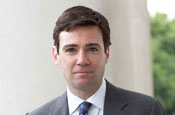
Azon Howie, head of broadcast at Carat, said: "For the past two or three years, we've all been saying we felt the rules would be relaxed in line with the EU directive.
"As advertisers are squeezed and there is a growing desire for TV to be healthy, and given the fact that TV legislation is tighter than elsewhere, you would expect some loosening in line with the European directive."
Howie's view was mirrored by PHD broadcast director Adam Turner, who added: "The noise surrounding the phone-line scandals and The Queen documentary on the BBC have made the powers that be wary of TV. People are more willing to regulate and less willing to relax rules - they're scared of being too soft."
Speaking at a convergence think tank, Burnham did not mince his words when he said that product placement would "contaminate" TV and further undermine public trust in the medium.
Howie added: "When you consider the context, that broadcasters are losing the trust of the British public, specifically through the competition phone-in shenanigans, it's not surprising at all."
Nick Walford, chief operating officer of MindShare Performance, the WPP agency's specialist branded content arm, added to the disappointment voiced by agencies: "King Canute comes to mind in the position seemingly taken by Andy Burnham.
"He is wrong to rule it out because product placement exists in imported drama and films. Sports programmes have brand presence inside editorial.
"We would urge him to consult on the issue and listen to the arguments. Let us get the representatives of key stakeholders to develop a regulatory code, which enables funding through product placement but provides a barrier for crass executions and resists impractical signposting."
Ofcom is holding a consultation this summer, looking at whether the ban on product placement should be lifted. It has been brought about by the introduction of the European Union's Audiovisual Media Services directive.



_1.jpg)
.jpg)
